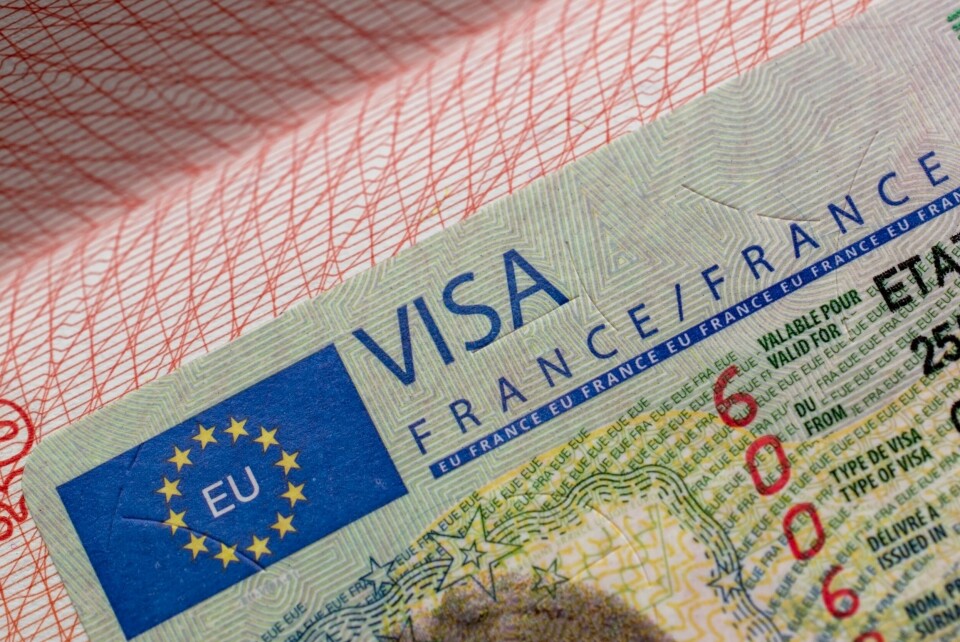-
Roadside noise cameras await approval to start issuing fines for loud vehicles in France
The devices known as meduses already exist in several cities but so far have only been ‘instructional’
-
White storks make strong return in France via nest ‘platforms’ and clipped wings
The Ligue pour la Protection des Oiseaux shares the conservation challenges in saving these birds from extinction
-
Hosting scheme in south-west France lets newcomers sample lifestyle
Households in nine Dordogne communes volunteer under Mes Nouveaux Voisins scheme
Are more or fewer visas being issued for France, what has changed?
Americans are now the most numerous among foreign nationals obtaining new residency cards, apart from people from North Africa

There was an increase in all types of visas issued for France in 2022, according to data released this summer by the Interior Ministry concerning visas and residency cards.
Out of 2.3 million applications, 1.7 million visas were issued last year (a 137% rise on the previous year) with 500,000 refused but this still lags behind pre-pandemic levels.
In 2019, before the pandemic, France issued 3.5 million visas of all types. The following years, due to lockdowns and transit restrictions, saw significant reductions, with only 712,317 and 733,070 visas of all types issued in 2020 and 2021, respectively.
Having said that, the number of long-stay visas granted – the kind of relevance to most Connexion readers – actually rose to a record level of 277,035. Among the various kinds of long-stay visa, those issued for 'economic reasons' (ie. to people coming to work), rose especially strongly, up 66.6% on the previous year.
in 2022, visas issued to people from India were the most numerous in 2022, followed by Algeria and Tunisia.
What visas are available for France?
Most visas fall into three categories:
- Transit visas, which allow visitors to cross the Schengen area to reach another state or to cross the international area of the airport
- Short-stay visas for less than 90 days, for example for tourism visits by people of nationalities that do not have a visa waiver
- Long-stay visas for more than 90 days and up to one year (used by non-EU nationals moving to France and for second-home owners from visa-waiver countries who want to spend more than three months in France)
Read also: Is the French visa system too difficult?
What about residency cards?
Visas are issued to non-EU citizens in their countries of origin, when they seek to enter France, whereas residency cards are issued in France, to those wishing to prolong their stay.
Residency card statistics are broken down according to whether a card is being issued for the first time or renewed.
In 2022, there were 316,000 first issues, which was above the level of 2019. Cards for students were the type issued in the largest number (101,250), overtaking the number of cards for people coming due to family links in France. The biggest nationalities for first issues were in order, Morocco, Algeria, Tunisia and the US.
Although less numerous in overall numbers of cards, the biggest year-on-year rises in first-time card issues, in fact, were cards for people coming for work reasons, especially seasonal and temporary work, and 'visitors' (which includes early retirees and pensioners).
Residency permits issued to British people spiked in 2021, when 99,954 permits were issued following Brexit. Prior to this Britons were not obliged to have residency cards or visas to live in France.
This number is down again to around 11,000 residency cards issued to Britons in 2022. This is similar to levels in 2018, when, in anticipation of Brexit, some Britons were applying for the optional residency cards that are available to EU citizens.
Read more in The Connexion’s Guide to Visas and Residency Cards.
Becoming a French citizen
People can become a French citizen either through naturalisation or by declaration.
The former is for people who have lived in France for more than five years and are able to demonstrate other factors such as knowledge of French and French culture, stable income, adherence to ‘Republican values’ etc.
The slightly simpler declaration process relates to children born in France to foreign parents or those with close French family links.
In 2022 114,483 people acquired French citizenship, a number that surpassed the pre-pandemic level of 107,979 new citizens in 2019.
Read also
Does a French residency card allow you free movement in the EU?
Concerns over end of six-month visas for France dismissed
























